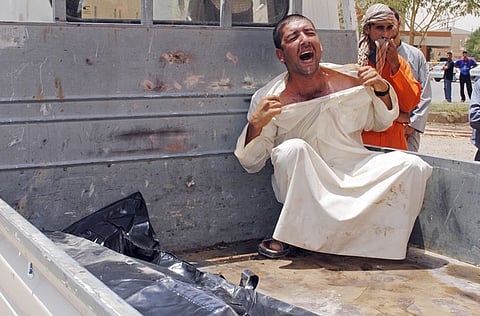Iraq suffers while politicians talk
Baghdad needs a new government to take charge and stop sectarian violence

It is shocking that over 500 people were violently killed in Iraq last month, and more than 1,000 were wounded. The total was boosted substantially by 160 deaths due to bombing and mortar attacks against two Shiite pilgrimages and an attack against an anti-Al Qaida militia.
All this politically inspired violence has escalated hugely in the past few months, greatly increasing factional suspicions and hatred.
Iraq desperately needs a new government, even if it has to try to work with the confused political mandate of the March elections.
A new (or renewed) prime minister has to take a lead and set out new priorities, and re-establish Iraq's political momentum. Much of the present violence is due to political groups perceiving a failure in the parliamentary system, and seeking to strengthen their position by resorting to violence and intimidation.
The bitter factionalism caused by the inclusive election result cannot be allowed to wreck the whole country. Eyad Allawi's Iraqiya Party won by two seats over Nouri Al Maliki's State of Law Party, but Iraq needs an agreement on who should form the new government. It is dangerous for the parties to refuse to come to an agreement.
Sign up for the Daily Briefing
Get the latest news and updates straight to your inbox



